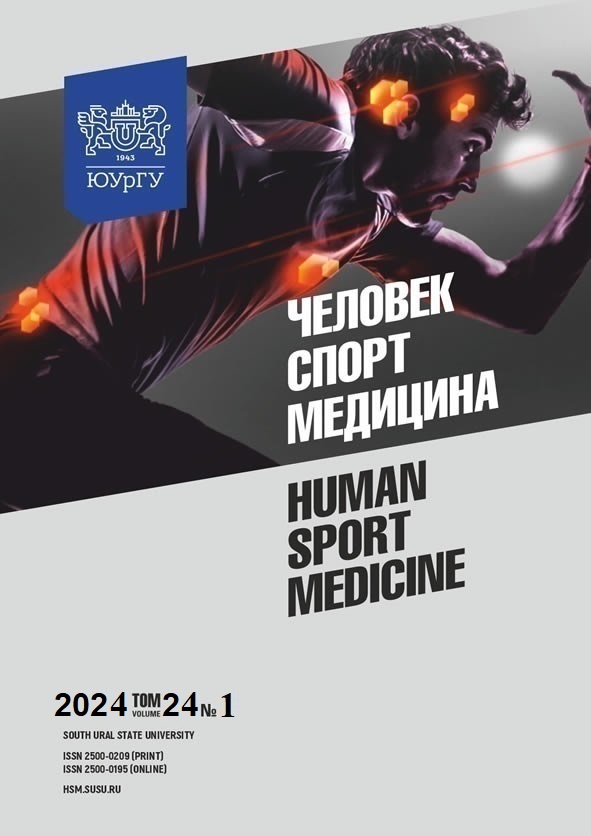FACTORS CONTRIBUTING TO SUCCESS IN MARTIAL ARTS (LITERATURE REVIEW). PART 1
Abstract
Aim. To provide a comprehensive review of the latest scientific research on the factors contributing to success in martial arts. Materials and methods. To gather information, a literature review was conducted using databases such as PubMed, Google Scholar, eLibrary, and Cyberleninka. Special attention was paid to original research published in reputable journals between 1991 and 2023. Results. The main factors contributing to success in martial arts are considered to include anthropometric (somatic), physical, technical, tactical, and psychological aspects. In this review, part 1 will focus on discussing the contributions of anthropometric and physical factors in detail. Conclusion. The mesomorphic somatotype is not
a prerequisite for success in martial arts. Elite athletes in this field often possess larger body dimensions. Anaerobic strength and power are essential components of athletic success, acting as accurate predictors of performance (endurance) regardless of age, gender, weight, and sports discipline. Fitness parameters, such as maximal dynamic strength, isometric strength, explosive strength, and strength endurance, differentiate highly skilled athletes from low skilled ones. While long-term anaerobic endurance contributes to success among martial arts athletes from mixed sports and grappling compared to combat sports, flexibility is not a key fitness factor that determines athletic performance in martial arts.
References
References on translit
Copyright (c) 2024 Human. Sport. Medicine

This work is licensed under a Creative Commons Attribution-NonCommercial-NoDerivatives 4.0 International License.















